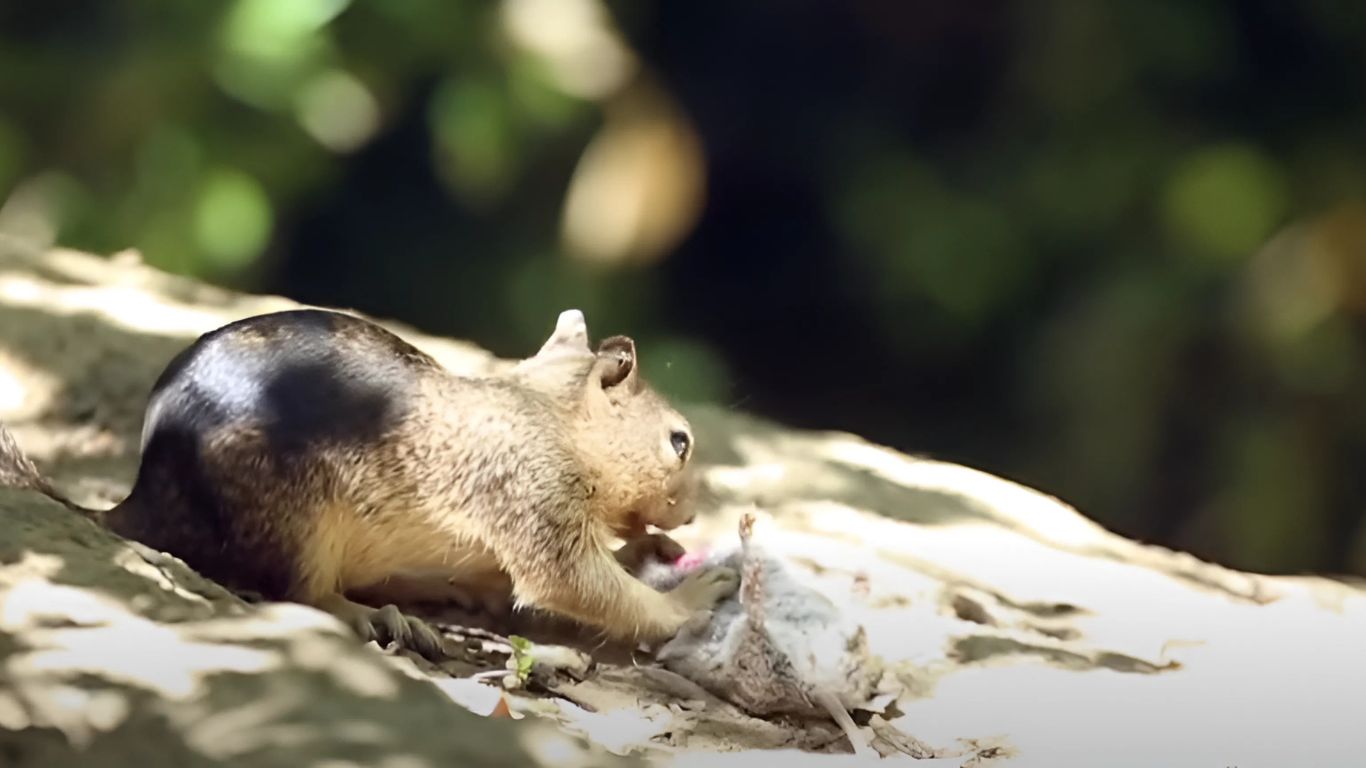
Ever heard of squirrels eating voles? It’s not from a weird wildlife show. Researchers found something surprising in East Bay parks. Squirrels, known for eating nuts, are now hunting voles. This new behavior has raised many questions about our ecosystem.
Let’s look into this exciting research and what it means for our environment.
Understanding the Vole-Munching Squirrels
What Are Voles and Why Are They Important?
- Voles Defined: Small rodents, like mice but with stouter bodies and shorter tails.
- Ecological Role: Voles are key prey for many animals, helping owls and hawks survive.
- Impact on Vegetation: They help with soil aeration but can harm crops if their numbers grow too high.
The Surprising Predators: Ground Squirrels
- Common Diet: Squirrels usually eat seeds, nuts, and plants.
- Predatory Twist: Now, ground squirrels are hunting and eating voles.
- Behavioral Shift: What’s behind this change? Let’s explore the reasons.
The Research That Uncovered This Behavior
Who Conducted the Study?
- Research Team: A group of ecologists studying how predators and prey interact in East Bay parks.
- Study Duration: They observed for several seasons to get accurate results.
How Was the Behavior Documented?
- Methods Used:
- Camera traps were set up in vole habitats.
- Field researchers also made direct observations.
- Findings: They found many instances of squirrels hunting voles, challenging what we thought about their diets.
Why Are Squirrels Eating Voles?
Food Scarcity Hypothesis
- Changing Environment: Climate changes might make it harder for squirrels to find their usual food.
- Adaptation: They might be eating voles to survive when food is scarce.
Nutritional Benefits
- Protein-Rich Diet: Voles offer a lot of protein, which is great for squirrels during breeding times.
- Energy Efficiency: Hunting voles might be more energy-efficient than searching for scattered nuts.
Competition Reduction
- Overlapping Niches: By eating voles, squirrels might avoid competing with other herbivores.
Implications for the Ecosystem
Predator-Prey Balance
- Disruption: Squirrels becoming predators could change the balance between predators and prey.
- New Predator: Voles might face more danger from predators, affecting their numbers.
Impact on Other Predators
- Increased Competition: Owls, hawks, and foxes might now compete with squirrels for voles.
- Chain Reaction: Changes in vole numbers could affect the entire food chain.
What This Means for Conservation Efforts
Monitoring Ecosystem Health
- Broader Studies Needed: Long-term research to assess the impact on biodiversity.
- Adaptation Signals: Observing dietary shifts helps understand how species adapt to changing environments.
Managing Vole Populations
- Balancing Act: Squirrels might inadvertently aid in controlling vole overpopulation.
- Agricultural Impact: Reduced vole numbers could benefit nearby farms.
Fun Facts About Squirrels and Voles
Did You Know?
- Squirrels can leap up to 10 times their body length.
- Voles have underground tunnels that can span entire backyards.
- Squirrels’ sharp incisors grow continuously, requiring constant gnawing to keep them in check.
How Can You Observe Wildlife Responsibly?
Tips for Nature Lovers
- Keep Your Distance: Respect wildlife and avoid disturbing their habitats.
- Use Binoculars: Get a closer look without getting too close.
- Stay on Trails: Minimize your impact on delicate ecosystems.
- Leave No Trace: Clean up after yourself and avoid feeding animals.
Conclusion
Squirrels hunting voles may seem unusual, but it shows wildlife’s incredible adaptability. These observations remind us of nature’s complexity and the need to preserve ecosystems. As researchers study this, we learn more about how species face environmental challenges.
FAQs
Are squirrels becoming predators?
Not entirely. While squirrels mainly eat plants, they might hunt voles when food is scarce.
Do all squirrels eat voles?
No, this behavior is mainly seen in certain ground squirrel populations.
Will this behavior spread to other squirrel species?
It’s unlikely, as squirrels’ diets are shaped by their local environment and available food.
How can I help protect local wildlife?
You can support conservation, avoid disrupting habitats, and teach others about wildlife preservation.
What should I do if I see unusual animal behavior?
Report your observations to local wildlife agencies or researchers. Your input could help with important studies.